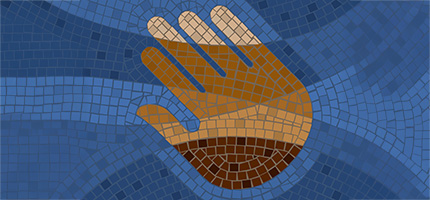National Centre for Truth and Reconciliation
In 2015, the Truth and Reconciliation Commission of Canada released its Final Report, including 94 Calls to Action aimed at redressing the legacy of residential schools and advancing the process of reconciliation. The work of the TRC now resides at the National Centre for Truth and Reconciliation.
Truth and Reconciliation Commission Reports
Reports issued or created by the Truth and Reconciliation Commission of Canada. Digital copies can be accessed or duplicated at no charge.
Honouring the Truth, Reconciling for the Future
An audio version of the Final Report of the Truth and Reconciliation Commission of Canada.
NCTR Archives
View an Interactive Map of residential schools and TRC events. The archives host over five million archive records, including listings of residential schools, descriptions and recordings of TRC events, and records such as maps and letters.
Educational Programs
Indigenous Intercultural Course, Law Society of BC
All lawyers in BC are required to take this course by December 31, 2023. It provides them knowledge on history, legislation, and the issues that reconciliation seeks to address.
Indigenous Relations Academy
Powered by Indigenous Corporate Training Inc., self-guided training with videos and additional resources to help individuals succeed in Working Effectively with Indigenous Peoples®.
Indigenous Canada from the University of Alberta
The Faculty of Native Studies offers this 12-lesson Massive Open Online Course (MOOC) at no cost, exploring the different histories and contemporary perspectives of Indigenous peoples living in Canada.
Guides and Reports
Guidance for Lawyers on Using Inclusive Language
This LSBC practice resource is intended to support lawyers in their use of inclusive language. Developing literacy with language that more accurately reflects Indigenous people is core to building cultures of reconciliation. See pages 5-8. March 2023.
Guide for Lawyers Working with Indigenous Peoples
A joint project of The Advocates’ Society, The Indigenous Bar Association and The Law Society of Ontario. September 2022.
Kitchen Table Guide for Reconciliation Dialogue
A Kitchen Table Dialogue creates space for constructive conversations on reconciliation. This do-it-yourself framework allows Indigenous peoples and all Canadians the opportunity to gather their friends, family, neighbours and/or colleagues to join the dialogue on reconciliation and contribute to the movement, helping us to create a new way forward for all people in Canada.
Expanding our Vision: Cultural Equality & Indigenous Peoples’ Human Rights
by Ardith Walkem, QC, BC Human Rights Tribunal, January 2020.
Addressing Discriminatory Barriers Facing Aboriginal Law Students and Lawyers
Law Society of BC, April 2000.
Cutural Understanding
Witness Blanket
A visual online storyboard meant to illustrate the experience of Indigenous peoples in residential schools.
Territory Acknowledgement by Native-Land
Territory acknowledgement is a way that people insert an awareness of Indigenous presence and land rights in everyday life. This site advises which territories to acknowledge when you are speaking or presenting at an event or meeting.
But I Was Wearing a Suit
A mini-documentary about the racism that Indigenous lawyers and law students face within the legal profession. It is a grassroots project of a group of Indigenous Lawyers, produced with the support of the Continuing Legal Education Society of BC and the Law Society of BC.
Stolen Children | Residential School survivors speak out
How residential schools affected survivors, their children and grandchildren.
Canada's Dark Secret | Featured Documentaries
The story of Canada's residential school system and the Indigenous survivors who bear witness to its abuses
Uncovered: Truths About Residential Schools | Episode 1
Experts and community members speak on the history of residential schools, the current work being done to locate missing children, how the impacts and trauma of residential schools continues to this day and how we move forward for resurgent Indigenous futures.
Kuper Island | Residential School Survivors Documentary
Métis filmmaker Christine Welsh and Peter C. Campbell join survivors of the school, 20 years after its closure, as they begin to break the silence and embark on an extraordinary healing journey.
Support Services
Indian Residential School Survivors Society has a 24/7 crisis line available for all residential school survivors, family members and descendants, and traditional counsellors are available upon request. Please call 1-800-721-0066 or 1-866-925-4419.
Lawyers Assistance Program of BC offers a 24/7 support line. Please call 1-888-685-2171.
CBABC Aboriginal Lawyers Forum supports Aboriginal law students, law graduates and lawyers and the issues they face as Aboriginal people in the legal profession.







